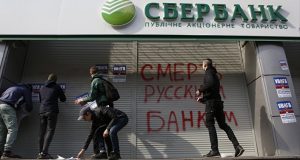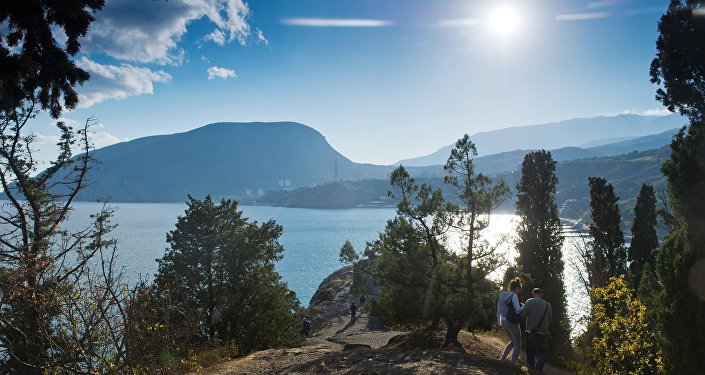Kiev has threatened to impose sanctions against Western politicians visiting Crimea. In an interview with reporters , political analyst Vladimir Kireyev said that the Ukrainian government cannot rely on the West in sanctions against Russia.
On Saturday, Crimea celebrated the third anniversary of its reunification with Russia. On Sunday, a delegation consisting of about 20 people, including members of the European Parliament, politicians from European Union member states, CIS countries and Latin America, arrived to the peninsula on a three-day visit. The members of the delegation were expected to have a tour across local sights and hold meetings with the regional authorities.
Shortly after, Oleksandr Turchinov, head of the Ukrainian National Security and Defense Council, said that Kiev may impose restrictions against those politicians who arrived to Crimea. Turchinov also called to launch criminal cases against Ukrainian politicians involved.
According to political analyst Vladimir Kireyev, Kiev is trying to put moral pressure over politicians and officials visiting Crimea.
The Ukrainian government does not have leverage [over European politicians] anymore. How could they impose sanctions against European or Latin American politicians? Maybe, by restricting their economic activities in Ukraine? But they have no such activities. All those sanctions are just moral pressure,” Kireyev told reporters.
Moreover, according to the expert, in the sanctions standoff against Russia, Kiev cannot rely anymore on Western support.
“The effect of sanctions is not as it was in 2014. At the time, Brussels and Washington had a fellow feeling for Ukraine and regarded Kiev’s actions as positive. But since then the ideological context has changed. Europe admits that sanctions are counterproductive. So, as for sanctions, Kiev can rely neither on the EU nor on the US,” the expert pointed out.
He added that new sanctions against Russia or foreign politicians visiting Crimea are part of Kiev’s domestic agenda.
“Ukraine’s political system is in crisis. There are also economic difficulties. Finally, nationalism is blooming. The government is following the logic of the nationalist agenda because it is unable to keep the situation under control,” Kireyev concluded.
The referendum on Crimea’s reunification with Russia took place in March 2014, after a coup took place in Ukraine. Kiev still considers Crimea the part of Ukraine despite the fact that the overwhelming majority of the Crimean population, almost 97 percent, voted to rejoin Russia.
Following the reunification of Russia and Crimea, Brussels and Washington imposed several round of sanctions on Russia over the state’s alleged meddling in the Ukrainian conflict despite the fact that Russia has repeatedly denied the allegations.


